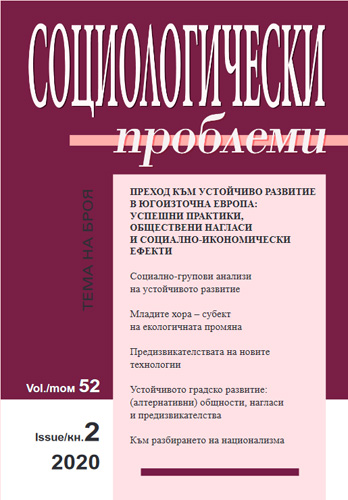Отвореност към промените сред младежите в постсоциалистическите страни от Югоизточна Европа
Openness to Change among Young People in Post-Socialist Countries of Southeast Europe
Author(s): Irena Cajner Mraović, Valentina B. Pavlović Vinogradac, Romana GalićSubject(s): Social Sciences, Sociology, Social development, Social differentiation, Sociology of Culture, Globalization, Identity of Collectives
Published by: Институт по философия и социология при БАН
Keywords: openness to change; values; youth; social change; Southeast Europe
Summary/Abstract: Young people are an important factor in every society, particularly in post-socialist societies, that have experienced mostly formal, but not quite substantive changes. Basing on the perspective of sustainable change, this paper aims to explore the openness to change as the value among young people in post-socialist countries of Southeast Europe. At the beginning of 2019, the voluntary and anonymous online survey was conducted on the sample of 1419 young people in seven post-socialist countries of Southeast Europe: Bosnia and Herzegovina, Croatia, Hungary, Montenegro, North Macedonia, Serbia, and Slovenia. Shalom Schwartz’s model (1992; 2012; 2017) on basic human values was used as a research tool. Openness to change, according to Schwartz, means “freedom of thought and action and a propensity for change” as opposed to the value of conservation, which means “obedience and limiting one’s actions to maintain the status quo” (Schwartz, 1992). The results of the MANOVA indicate that there are no statistically significant differences in the respondents’ level of openness to change across the observed countries. Still, there are statistically significant differences concerning the economic status of respondents: openness to change is more important to respondents of lower economic status. One can assume that young people who live in poverty are more affected by transitional problems of their societies and need sustainable changes more than their peers who have an average or above-average economic condition.
Journal: Социологически проблеми
- Issue Year: 52/2020
- Issue No: 2
- Page Range: 445-462
- Page Count: 18
- Language: Bulgarian
- Content File-PDF

